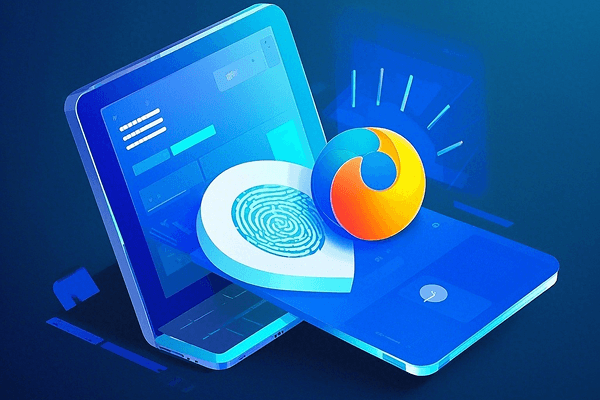
Hot Picks
How to run Facebook ads in 2025? Ideas

Hot Picks
How to promote on Amazon? Sharing various promotion methods

Hot Picks
Choose BitBrowser for fingerprint browsers, and look for the only official website: bitbrowser.cn
How do virtual browsers address authentication threats?
Time: 2023-06-12 17:37 Click:

Our life and work are inseparable from the Internet, but with the development of the Internet, have you found that the Internet is also quietly interfering with our lives? When it's hard to choose a product, online advertising gives you relevant choices and automatically logs you into your account when you visit certain sites. The convenience of the Internet comes at the price of privacy. This is why many people hate browser fingerprinting and use virtual browsers.
In recent years, more and more people have spoken out against third-party cookies, however, the issue of privacy on the Internet remains unresolved. This is due to browser fingerprinting, a newer, more modern technology that can identify users on the internet with 90% accuracy. Browser fingerprinting takes a holistic approach, where "personality" is defined through multiple attributes that combine to form a unique trace unique to a particular user.
1. Equipment technical characteristics—software, bit rate, CPU clock frequency, amount of RAM, etc.
2. Device data sent by the browser through the user agent.
Banning third-party cookies does not solve browser privacy concerns, as user identification on the web can function successfully without them, and evasion software and proxies will not help in this case.
These services only allow you to bypass blocks and view websites that are blocked in certain countries. In this case, only the IP of the device is replaced, not other parameters belonging to the fingerprint.
The aggregated user data is ultimately stored in the analytics platform database and then sold to third parties. This information goes into the hands of advertising networks and is used to target radio advertisements. At worst, you could fall into the hands of cybercriminals, fall victim to phishing, and suffer financial losses.
All of this information theft is done with the help of the browser and with the tacit approval of the developer. And, the companies that distribute the software themselves profit from violating user privacy and use the statistics collected for our own purposes.
Bit virtual browser - the best way to prevent browser recognition
However, some browsers may provide you with more Internet anonymity. After all, not all software publishers are solely after commercial interests. Professionals usually don't block third-party cookies or trackers, but they do perform fingerprinting spoofing.
Bitvirtual browser fingerprint replacement allows users to customize and modify fingerprint parameters in Bitvirtual browser configuration files, use fake fingerprints to deal with website detection, SSL encryption, and encryption technology can be used to ensure the security of user information.
Virtual browsers are an indispensable tool for many industries that attach great importance to browser information security, including social media marketing, advertising, cross-border e-commerce, etc. Therefore, virtual browsers are gradually replacing traditional browsers and have become a necessity for daily work.

 Multi-Account Management
Multi-Account Management Prevent Account Association
Prevent Account Association Multi-Employee Management
Multi-Employee Management



